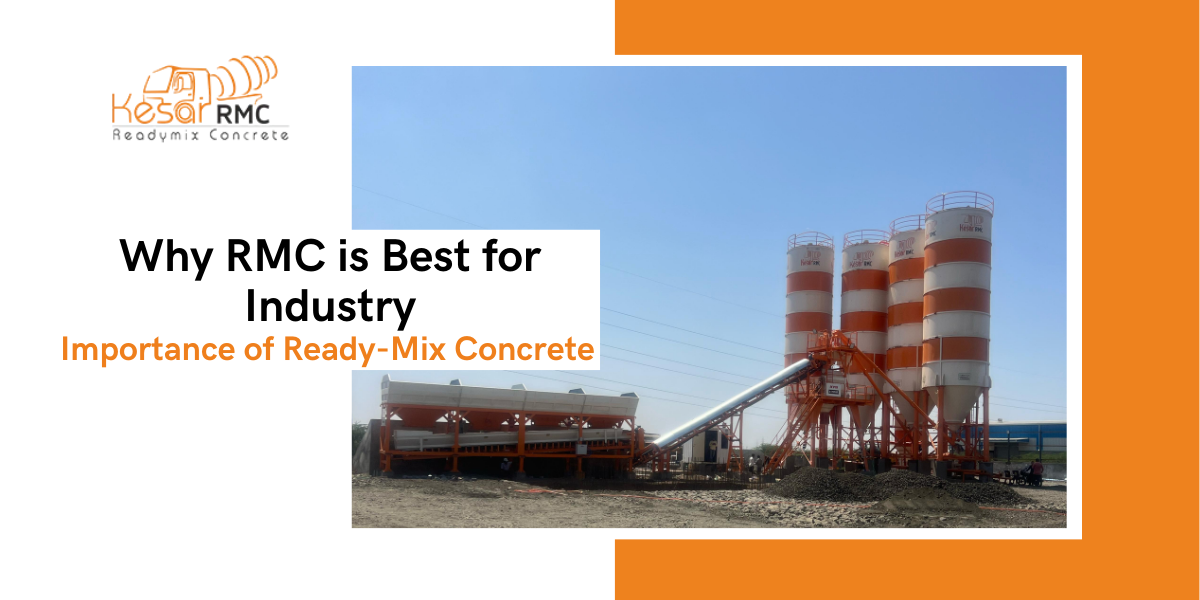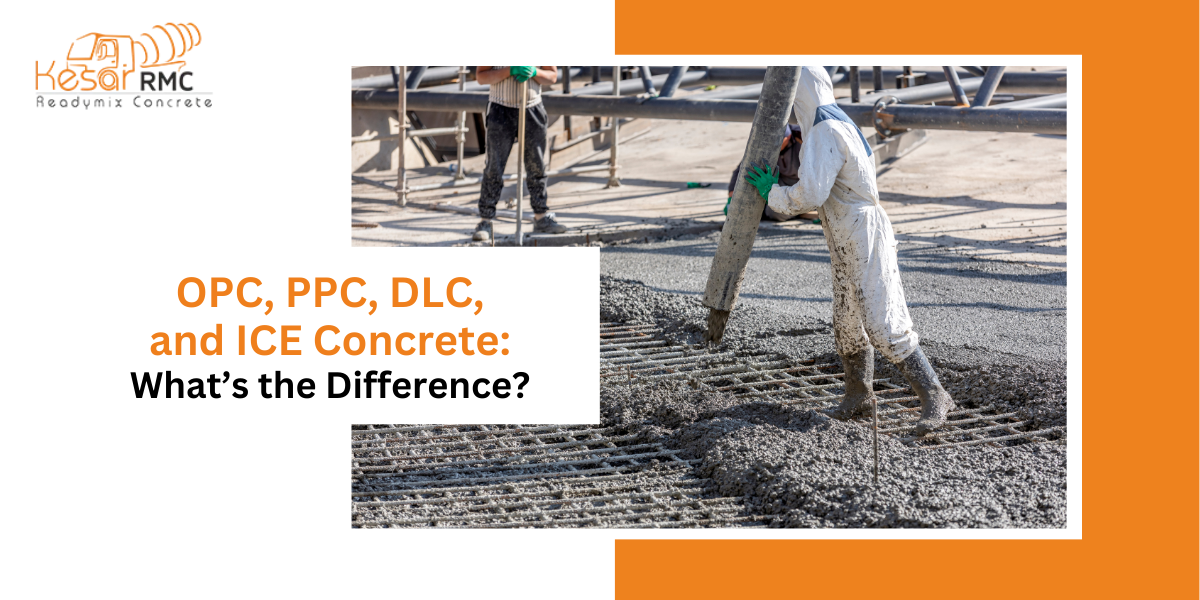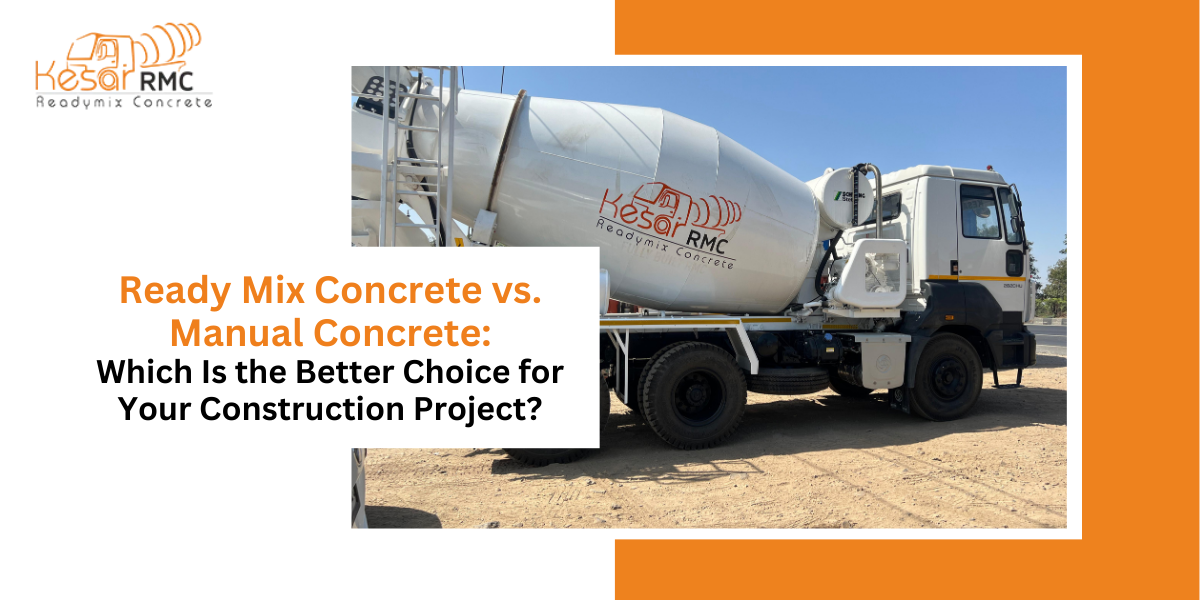
In the ever-evolving field of industrial construction, Ready-Mix Concrete (RMC) stands out as a superior choice. Its advantages in terms of quality, efficiency, and sustainability make it the preferred material for industrial applications. This article explores the reasons why RMC is considered the best for the industries and highlights its importance in various industrial applications.
Superior Quality and Consistency
Controlled Production Environment
RMC is manufactured in a controlled environment, which ensures consistent quality. The production process involves precise measurement and mixing of ingredients, resulting in a uniform product. This level of control is difficult to achieve with on-site mixing.
High-Grade Raw Materials
The use of high-quality raw materials in the production of RMC contributes to its superior properties. The aggregates, cement, and admixtures are carefully selected to meet specific standards, ensuring the final product meets the required strength and durability.
Stringent Quality Control
Throughout the manufacturing process, RMC undergoes rigorous quality control checks. These include testing for strength, workability, and durability. This ensures that the concrete delivered to the construction site is of the highest quality.
Enhanced Efficiency and Speed
Reduced Construction Time
Using RMC significantly reduces construction time. Since the concrete is delivered ready for use, it eliminates the need for on-site mixing. This speeds up the construction process, allowing projects to be completed faster.
Labor Efficiency
RMC reduces the need for extensive labor on-site. With fewer workers required for mixing and handling concrete, labor costs are minimized. This also reduces the likelihood of human error, which can compromise the quality of the concrete.
Streamlined Project Management
The use of RMC simplifies project management. Deliveries can be scheduled to align with project timelines, ensuring a steady supply of concrete. This predictability enhances project planning and execution.
Environmental Benefits
Reduced Waste
RMC production minimizes material waste. Exact quantities of raw materials are used, reducing the likelihood of excess concrete that must be disposed of. This contributes to a more sustainable construction process.
Lower Carbon Footprint
RMC plants often incorporate energy-efficient technologies and use local materials, reducing transportation emissions. Additionally, many RMC producers utilize supplementary cementitious materials (SCMs) such as fly ash and slag, which reduce the overall carbon footprint of the concrete.
Recycling Opportunities
The production of RMC offers opportunities for recycling. Water used in the mixing process can be recycled, and waste concrete can be reprocessed. This contributes to a circular economy in the construction industries.
Versatility in Applications
Foundations
RMC is ideal for constructing strong and durable foundations. Its high compressive strength ensures that foundations can support heavy industrial structures and withstand various loads.
Structural Components
RMC is extensively used in the construction of columns, beams, and slabs. Its uniform quality and strength make it a reliable choice for these critical structural elements.
Infrastructure Projects
Large infrastructure projects, such as bridges, tunnels, and highways, benefit from the consistent quality and performance of RMC. Its durability and resistance to weathering make it suitable for these demanding applications.
Specialized Mixes
RMC can be tailored to meet specific project requirements. Specialized mixes with additives can enhance properties such as workability, setting time, and strength. This versatility makes RMC suitable for a wide range of industrial applications.
Cost-Effectiveness
Long-Term Durability
The long-term durability of RMC reduces maintenance and repair costs. Its resistance to cracking, shrinkage, and environmental factors ensures that structures remain sound for longer periods, resulting in lower lifecycle costs.
Optimized Material Usage
RMC allows for optimized use of materials, reducing waste and ensuring that the exact quantities required are produced and delivered. This precision leads to cost savings and efficient resource utilization.
Economies of Scale
Large-scale production of RMC results in economies of scale. Bulk purchasing of raw materials and the efficiency of batch production reduce overall costs, making RMC a cost-effective option for industrial construction projects.


